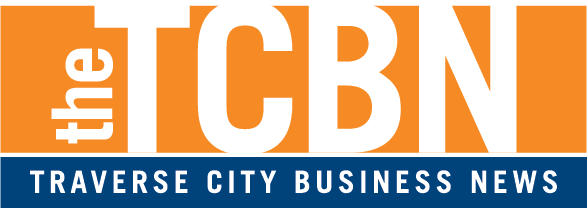
Traverse City Business News Commentary, July 2019 By Casey Cowell
Jordan Lindberg, a Traverse City native, has grown eFulfillment Service into a very successful regional e-commerce company. You can’t compete with Amazon, but eFulfillment Service does. Did degrees in engineering, computer science, math and an MBA power Jordan to this success? No.
How about a Ph.D. in philosophy?
“Yes sir,” said Lindberg, who is the executive vice president of the fulfillment company. Maybe there is a little revelation here?
To contribute meaningfully as thoughtful, informed and engaged citizens we need to learn how to think critically. We all need to develop critical thinking skills and learn how to apply that thinking to any subject we tackle. Recently I read an article about this in the Chronicle of Higher Education. To summarize, the study of science teaches the scientific method: observe, hypothesize, test, theorize, publish. It teaches logical and observational analytical skills. Many educators believe this automatically develops critical thinking skills for life.
The article’s authors disagree. Critical thinking in life requires broader skillsets of independent and logical thinking, questioning and probing, which are crucial in drawing sound conclusions and making informed decisions. Learning how to identify strong and weak arguments, reliable and faulty evidence, and how to question opinions and trends – these are critical thinking skills that can be taught, practiced and refined.
One meaningful way of teaching critical thinking has evolved through the ages: the study of philosophy.
Philosophy is a discipline comprising at its core logic, aesthetics, ethics, metaphysics, and epistemology. More simply, it’s the study of rational thought and big questions, a study that gets to the heart of knowledge and existence by an attempt to understand difficult concepts like reality, free will, rights, truth, and morality. These fundamental concepts and their underpinnings are approachable through reading, careful thought and reflection, discussion, and debate. This process of consideration is critical to understanding and forming sound opinions – skills needed to negotiate our complex world.
After receiving his degree, Lindberg taught philosophy at Central Michigan University for nearly a decade. He is certain that his experience with philosophy has contributed significantly to his success.
“The value of the study of philosophy lies in the skills and also in the outlook that it encourages. The study of philosophy fosters critical reading, writing, and listening skills, along with a kind of intellectual humility and an empathy toward different perspectives,” he said.
Philosophical study also involves paying close and critical attention to the ideas of great thinkers such as Plato, Aristotle, René Descartes, David Hume, Immanuel Kant, and Ludwig Wittgenstein, says Lindberg.
“We have this tradition in philosophy of working through the ideas of all of these classic figures who thought about big subjects like the nature of justice, the scope and limits of what is knowable, real, and valuable, the distinction between cogent and fallacious reasoning, and so on,” he said.
Lindberg graduated from Traverse City Senior High in 1987. He was on the debate team under coach Mike Nolan. Like policy debate, the study of philosophy is argumentative by nature, and involves exploring reasons more than feelings when it comes to formulating justified beliefs.
“I had a philosophy mentor in college who used to say that you can never really lose an argument in philosophy,” he said. “If your view prevails, then it’s of course satisfying to experience that. But if you come to regard your view as ultimately mistaken, then you get the satisfaction of ridding yourself of a false belief. That’s how philosophers talk to one another.”
We can use philosophy to further our area’s cultural vibrancy and raise more thoughtful young people. But how? And how to start? One approach is simply by generating interest and introducing the concept of philosophy in approachable, understandable ways. In France, philosophy is taught as a mandatory subject throughout the school system starting in third grade. In our backyard, what better place to start than the Traverse Area District Library? Philosophy has a natural home at the public library, an ideal place to read, reflect on, deliberate, and talk about challenging ideas.
This summer, TADL – with support from Boomerang Catapult and input from Lindberg and others – will launch “Consider This:” a program and collection of materials utilizing philosophy to encourage critical thinking through reading, reflection, and discussion. It’s designed to reach students and readers of all ages and abilities, giving them a way to understand the forces that have shaped our history and society and to sharpen skills of deep consideration. In addition to designated books,
“Consider This:” will begin a conversation series in October with regular events planned to follow.
Upon honest, rigorous self-examination, most of us are quite often wrong. At the same time we are stubborn in our thinking and committed to being right. But guess what? Some keen self-examination using rational thinking and logic applied within a framework that has evolved over thousands of years may open our eyes to how frequently we are wrong. It’s invigorating, enlightening, honest and breeds integrity and humility. (Btw, how often do you hear “integrity” and “humility” in a description of someone’s character?)
So perhaps grab a student as a partner and hustle over to TADL this summer and … Consider This:! See you there.
Casey Cowell is a tech entrepreneur, philanthropist and start-up investor. He is a principal of local investment group Boomerang Catapult, LLC and a director of Munson Healthcare, Interlochen Center for the Arts and Groundwork Center for Resilient Communities.




